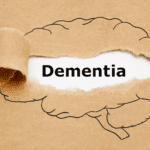Palliative care and assisted dying are two distinct approaches to end-of-life care that often need clarification due to their similarities. While both are concerned with providing comfort and support to individuals facing terminal illness or terminal conditions, they differ in their focus and goals. In this article, we will explore the key differences between palliative care and assisted dying and discuss the unique roles that each plays in end-of-life care.
What Is Palliative Care?
Palliative care is a specialised medical and nursing field that provides symptom relief and support to individuals and their families facing serious, life-limiting illnesses. The goal of this kind of service is to improve the quality of life for both the patient and their loved ones by addressing physical, emotional, social, and spiritual needs. Palliative care can be provided at any stage of an illness and can be given alongside curative treatment or as the main focus of care.
As well, palliative care teams typically include doctors, nurses, social workers, chaplains, and other healthcare professionals who work together to provide comprehensive care to patients and their families. Palliative care may involve managing pain and other symptoms, coordinating care with other healthcare providers, providing emotional and spiritual support, and assisting with decision-making and advance care planning.
What Is Assisted Dying?
Assisted dying, also known as physician-assisted suicide or euthanasia, refers to the practice of intentionally ending the life of a person who is suffering from a terminal illness or condition. In some jurisdictions, assisted dying is legal and can be performed by a doctor or other healthcare professional, with the patient’s consent. In other places, it is illegal and considered a criminal offence.
The Difference Between Palliative Care And Assisted Dying
The main difference is that palliative care is focused on providing comfort and symptom relief to patients, while assisted dying is focused on ending the patient’s life. Palliative care does not involve the intentional ending of a patient’s life, whereas assisted dying does.
One of the key arguments for assisted dying is that it gives individuals facing terminal illness the option to choose how and when they die, and to end their suffering in a manner that is peaceful and dignified. Opponents of assisted dying argue that it can be misused to coerce or manipulate vulnerable individuals and undermines the value of human life.
Making The Decision
Ultimately, the decision to pursue palliative care or assisted dying is a deeply personal one that should be made with the guidance of a healthcare professional, in consultation with loved ones and other trusted advisors. Both can play important roles in end-of-life care, depending on the individual circumstances and preferences of the patient.
Overall Thoughts
In conclusion, palliative care and assisted dying are two distinct approaches to end-of-life care that differ in their focus and goals. Palliative care is focused on providing comfort and symptom relief to patients and their families, while assisted dying involves the intentional ending of a patient’s life. Both can play important roles in end-of-life care, depending on the individual circumstances and preferences of the patient.
Complete Homecare 24
At Complete Homecare 24, we provide a variety of services including Palliative Care. We aim to ensure that our patients feel seen, and most importantly heard, through our quality home care. Every client has a specifically tailored care plan, to enable our carers to understand specific needs and standards. To keep up to date, check out our Facebook and Instagram. Alternatively, check out our blog for more information.






1 Comment
Caregiver Stress Syndrome: When Caring Gets Too Much
10 January 2023[…] providing care is a very stressful job. Caregiver stress syndrome is very real but rarely talked about. It can have a significant impact on a […]